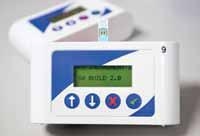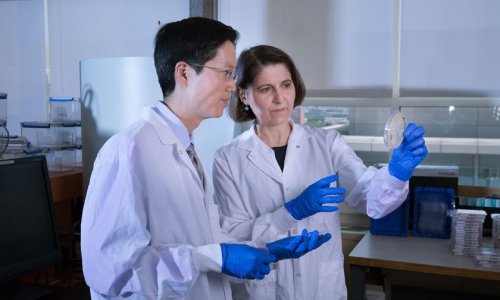Electrical sensors detect MRSA
Scientists in Scotland have developed a new test using a strip with electrical sensors that can show whether wounds or lesions have been infected with bacteria, including MRSA, Mark Nicholls reports. The hand-held test provides rapid results and allows almost immediate detection of bacteria, which means patients can be given more effective drugs much quicker and speed up their recovery.

The University of Edinburgh’s Division of Pathway Medicine team, in partnership with Scottish Enterprise, is confident of the benefits of the new test and hope that it will be on the market for hospitals in the near future. It works by taking swabs from a wound or sores for analysis using a strip with electrical sensors that can detect MRSA. The swab samples are then processed in the laboratory to isolate the required genetic material before testing but, in the future, they hope to integrate this within the strip for use outside the lab, as a POC test in healthcare settings.
Currently in hospitals, laboratory tests to confirm MRSA presence in a wound can take a full day using conventional techniques. Dr Till Bachmann, chief operating officer and head of biochip research at the Division of Pathway Medicine, said: ‘Current tests for MRSA tend to be expensive and not very fast. By developing a rapid and costeffective test, we would know what kind of infection is present straight away, which will improve the chance of success in treating it.’ The new test was developed using swabs from diabetic foot ulcers taken from patients attending NHS Lothian’s Diabetic Foot Clinic at Edinburgh’s Royal Infirmary.
The research behind the test was presented at the Advances in Biodetection and Biosensors conference in Edinburgh earlier this year. Its development was funded with £2.26 million from Scottish Enterprise’s large Scale Research and Development Programme and involved input from the University of Edinburgh’s Division of Pathway Medicine, School of Chemistry, School of Physics and Astronomy and the Scottish Microelectronics Centre working with NHS Lothian’s Diabetic Foot Clinic and Microbiology Department. The scientists are also using similar technology to monitor signals that bacteria send to each other to spread infections and chemicals that patients produce that indicate the wound’s response to the infecting bacteria.
10.07.2012





